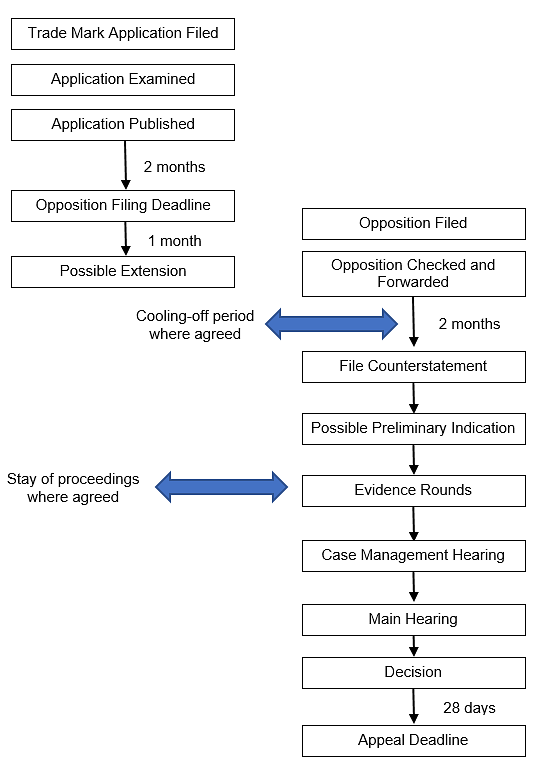What should I do before adopting a trade mark?
View more

A UK trade mark application can be opposed for many reasons: perhaps the trade mark is descriptive, maybe it was filed in bad faith, or it may conflict with existing rights.
While the UKIPO used to refuse a trade mark application on the basis of conflicting existing rights, this has not been so for many years, with the UKIPO taking the view that whether or not to challenge another trade mark is a commercial decision for rights owners. Rights owners therefore need to be aware of the possibility of opposing applications to register trade marks that are of concern to them and - more importantly - be willing to take action. This page briefly summarises the procedure.
The opposition period starts on the date that the application is published in the online Trade Marks Journal, and third parties have an initial period of two months in which to file an opposition
The two months can be extended to three by filing a Notice of Threatened Opposition (NoTO). The NoTO is treated as formal notification to an applicant of a potential opposition, which may be relevant to an evential cost award if formal opposition is subsequently filed. A NoTO is commonly filed when a potential opponent is still considering its options, and the extra month can be a useful period in which to start a settlement dialogue with the applicant.
The notice of opposition sets out the grounds of opposition. Briefly, these can be divided into absolute grounds (that the mark is inherently unregistrable) and relative grounds (that the mark should not be registered as it would conflict with the opponent's earlier rights), plus miscellaneous grounds such as the application having been filed in bad faith. The remedies most commonly sought are that the application be refused, together with a request for an award of costs.
Once the UKIPO is satisfield that the formal requirements of a trade mark opposition have been met, the trade mark applicant has two months in which to file a defence to the opposition. If no defence is filed, the opposition will succeed.
The UKIPO encourages the amicable resolution of disputes and, to that end, the opposition procedure incorporates an option 'cooling off period' during which the parties to the opposition can discuss terms of settlement. Many oppositions are resolved within this period, but if it is not possible, the opposition can simply continue with the filing of the defence.
The evidence
Assuming the applicant files a defence, the parties - starting with the opponent - take turns to file evidence and arguments in support of their respective positions .
Once everyone has filed their evidence, the parties to the opposition will be given the opportunity to request a Hearing, at which the opposition will be discussed with the Registry, or for a decision to be made on the basis of their submissions. If either party requests a Hearing, there will be one, but there is no obligation for the other party to attend.
The Hearing Officer will issue a decision in writing, which will uphold or dismiss the opposition, in part or in its entirety, and will frequently include a cost order in favour of the successful party. It is possible to appeal against a decision, to either the Appointed Person or the Court.
We recommend…

Contact us for more information on trade mark oppositions or any other trade mark-related matter. Our experienced trade mark attorneys are able to advise on all matters from filing strategy and new applications through to dispute resolution.
Author: Liz Lowe, Chartered Trade Mark Attorney
View more
View more
View more
View more
View more
View more
View more
View more
An occasional newsletter about patents, trade marks, designs and other intellectual property matters.